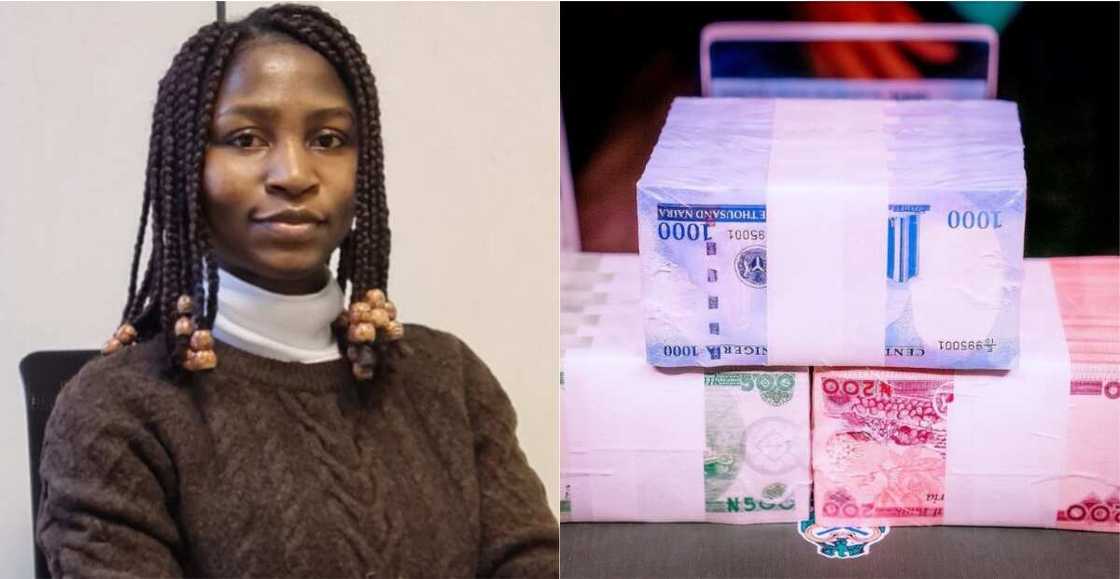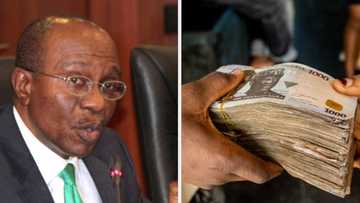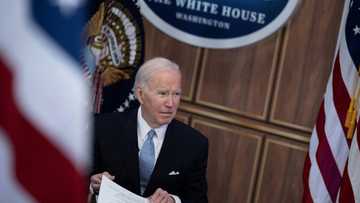Currency Redesign: Nigerians Might End Up Enjoying FG’s Initiative, Deborah Adeyeye Writes
Editor's note: Deborah Adeyeye, a specialist in Economic Policies for Global Transition, in this opinion writes on how currency redesign might be beneficial to Nigerians in the long run.
PAY ATTENTION: Сheck out news that is picked exactly for YOU ➡️ find the “Recommended for you” block on the home page and enjoy!
According to the specialist, currency redesign could be essential to strengthening the financial system and curbing inflation.
Amidst the many problems Nigeria faces on an economic, ecological, social, and political scale, the governor of Nigeria's central bank, Godwin Emefiele, recently announced the issuance of new notes, which will soon take off.
The announcement of the redesign of the Nigerian bank notes is not the first of its kind in the country's history. However, few of its objectives are comparable to the 1984 naira demonetization.

Source: UGC
When the Nigerian naira was demonetized in April 1984, currencies were not replaced. Instead, the appearance of all banknotes in circulation except the 50 Kobo banknotes was altered. This change was done to combat currency trafficking, a problem prevalent at the time.
PAY ATTENTION: Subscribe to Digital Talk newsletter to receive must-know business stories and succeed BIG!
Today, we are still facing a similar problem since the CBN governor stated in his press statement that the currency in circulation has more than doubled since 2015, growing from N1.46 trillion in December 2015 to N3.23 trillion in September 2022. Albeit, the greater share of the money is hoarded by members of the public, leaving only 15 % within the commercial bank's vaults.
Ironically, even with 85% of currency in circulation, millions of Nigerians are currently suffering from difficult conditions of hunger, poverty, and unemployment which is no longer an issue that can be ignored. Specifically, food is a basic need that needs to be met, and all socio-economic groups should be able to put meals on their table. Hyperinflation, however, makes food prices unaffordable for people, causing them to suffer different problems.
In an unstable economy like Nigeria, currency redesign could be essential to strengthening the financial system and curbing inflation. In addition, it can form part of an effort to reduce the underground economy, which has been growing rapidly in recent years and has become a national concern. Not all citizens may be very supportive of this proposal or see the long-term benefits, either because of the experience in 1984 or the short-term disruptions occurring between and after the old banknote ceases to be an acceptable means of payment.
No doubt, the naira may become even more volatile from now till 31 January 2023, due to individuals, investors or even state officials deciding to exchange their cash for foreign currency. The race to purchase dollars, Euros, Pounds, and other foreign currencies will weaken the naira. Nevertheless, from an optimistic view, currency redesign, if administered strictly, can make the naira more stable over time.
To achieve the major goal of reducing the banknotes hoarded by public individuals and monitoring the cash flow, I will recommend that a few things be done. First, the larger denominations of new notes, N500 and N1,000, should not be available on the ATM cash machine but should be supplied by commercial banks across the country. This proposal would imply that the ATM will only dispense N100 and N200 notes.
The merit of this proposal will first be reflected in consumer prices. In the case of N200 becoming the maximum denomination that can be dispensed through a cash machine, a price review will be necessary in order to make the policy effective. Within this context, it is expected that the Naira will be revalued. Meanwhile, lower denominations, including N5, N10, and even coins, will return to circulation for purchasing items in the market!
The small and medium-scale businesses that complete transactions mostly in cash might regard this policy to have a harsh effect on their business. However, it is a win-win for the business owner and the country's advancement. On the one hand, SMEs can use this opportunity to upgrade their business by embracing the E-Naira digital infrastructure for cashless transactions. Meanwhile, less cash in the hands of citizens can aid in fewer financial crimes, including financing terrorist attacks.

Read also
Report: CBN may devalue naira massively after elections as the gap between black market, official rate widens
Also, the short notice should be regarded as a blessing in disguise. A longer timeline will likely allow individuals who have stashed illegal money to purchase valuable commodities and deposit cash through another person or banking agent. In other words, the short timeline will seem effective in curbing the financial flows of terrorists, perpetrators of corruption and organization of activities that are detrimental to the economy's growth.
Likewise, as consumers spend to put the money back into circulation or direct deposits into commercial banks, there will be an increased supply of money. Increased savings deposits at banks will not only trigger the reduction of interest; the money can be redistributed through a loan for business investment that will help to reflate the economy and make it more productive.
In sum, the potential benefits of this currency redesign should be appreciated beyond the inconvenience that millions of Nigerians may experience as they queue up at banks to deposit old notes or exchange them. The long-term benefits, in my reckoning, will far outweigh the short-term inconveniences if the policy is pursued with the utmost degree of accountability and transparency.
Disclaimer: The views and opinions expressed here are those of the author and do not necessarily reflect the official policy or position of Legit.ng.
Your own opinion articles are welcome at info@corp.legit.ng— drop an email telling us what you want to write about and why. More details in Legit.ng’s step-by-step guide for guest contributors.
Contact us if you have any feedback, suggestions, complaints, or compliments.
Source: Legit.ng






